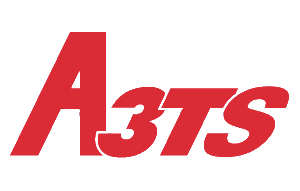BA04 - The ABC's of pVD, CVD & thermal spray surface treatments
Inter-company course 95% satisfaction rate
Educational objectives
To know the principles of dry deposition processes: PVD (Physical Vapor Deposition), CVD (Chemical Vapor Deposition) and thermal spray deposition
Identify the potential and limitations of this type of deposition compared to conventional wet deposition
To know the main applications of these treatments through industrial examples
PROGRAM
1. PVD deposits
Introduction to the potential of vacuum physics
- The absence of oxidation
- The disappearance of the constraints of electrochemistry
- The extraction mode of the atoms to be deposited and the mean free path under vacuum
- The capacity for doping (Carbon, Nitrogen)
The principles of PVD or vacuum deposition
Vacuum evaporation processes
Sputtering processes
Plasma arc processes
2. CVD deposits
The principle of CVD deposition
Atmospheric CVD processes
Low pressure and/or plasma assisted CVD processes
3. Thermal Spray Deposits
The principles of thermal spraying
The classic processes
Plasma assisted processes
4. Potential and limitations
The infinity of possible combinations
The limits of the PVD
The limits of CVD and thermal spraying
ADDITIONAL INFORMATION
To deepen your knowledge we suggest you create a training course using the BA05 module.
CONTACT US
formation@a3ts.org
+33 (0)1 45 26 22 35
Accessible to people with reduced mobility: yes. Accessible to people with other disabilities: please contact our disability advisor on +33 (0)1 45 26 22 35 to discuss the situation together.
- DATES INTER
- 04/25/2025 - Morning
- 05/16/2025 - Morning
Open to groups of 4 or more.
- DURATION
½day (4h)
- PUBLIC CONCERNED
All levels, all sectors of activity.
- PREREQUISITES
None
- METHODS MOBILIZED
Courses and exercises on paper or digital support. Multiroom videoconference platform with chat.
- PLACE
Face-to-face: A3TS PARIS
Distance learning: VISIOCONFERENCE
- RATES
- Inter : 380€ HT/pers. - Intra: on request
- TRAINER
Engineer - Expert in Surface Treatments.
- EVALUATION METHODS
Satisfaction survey at the end of the session.
Evaluation of learning at the beginning and end of the training.




